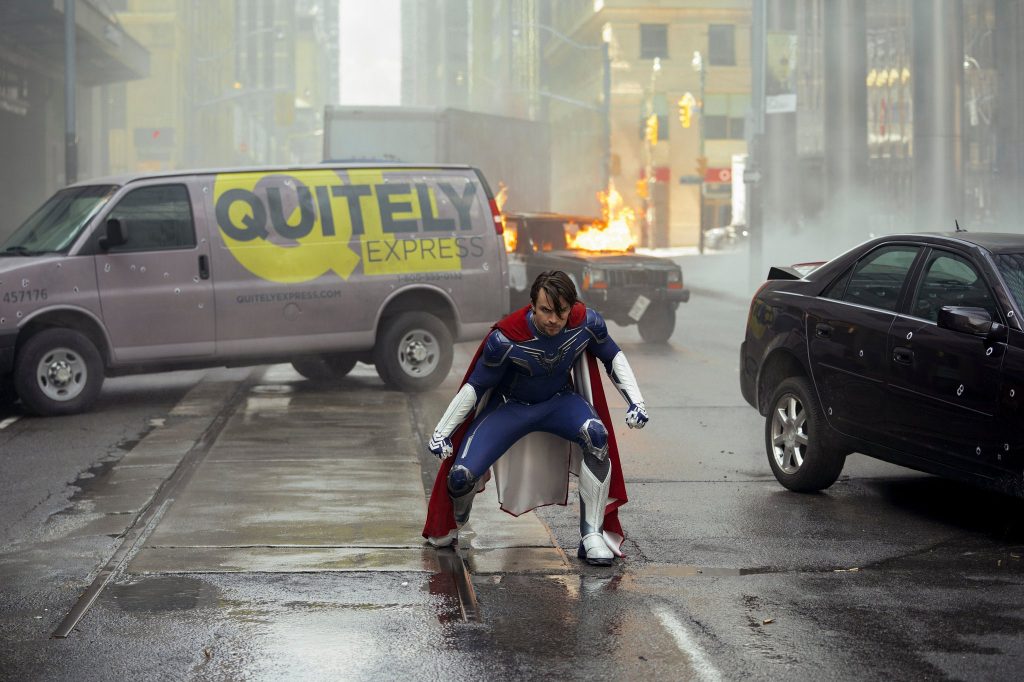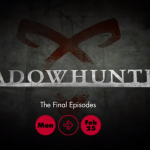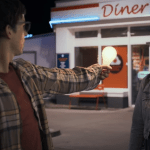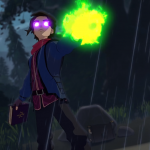Jupiter’s Legacy Season 1 Review: With Great Lineage…

Netflix’s Jupiter’s Legacy examines what it means to be a superhero, but inconsistent development prevents it from sticking the landing.
This review of Jupiter’s Legacy contains spoilers. Consider yourself warned.
With an influx of superhero adaptations from all corners of the industry, Jupiter’s Legacy is an adaptation of a popular comic book series that is more similar to properties like Watchmen and The Boys in its deconstruction of the superhero genre than the majority of Marvel and DC’s properties.
Jupiter’s Legacy centers on Sheldon (Josh Duhamel), his wife Grace (Leslie Bibb) and their two children, Brandon (Andrew Horton) and Chloe (Elena Kampouris). Sheldon is the leader of the Union of Justice, a group of superheroes formed in the late 1920s. His strict code of not killing anyone has shaped the Union over the decades, and his super-heroics have hindered his relationship with his children. This conflict presents an interesting dynamic for the series and provides a fresh angle on the superhero genre.
Chloe has rejected being a superhero, parlaying her family’s fame into a modeling career while Brandon, eager to follow in his parents’ footsteps, gets into trouble with Sheldon when he breaks the code in a deadly fight with the supervillain Blackstar (Tyler Mane), later revealed to be a clone of the actual Blackstar. The relationship between the two children and their parents’ superhero careers provides a contrast between how children may react to the prospect of joining the family business and provides a degree of relatability for viewers that don’t have superpowers.
The present-day storyline coincides with flashbacks of how Sheldon, haunted by his father’s suicide, gathers an expedition and follows a series of visions to a mysterious island where he, Grace, his brother Walter (Ben Daniels), his best friend George (Matt Lanter), and additional passengers, Fitz (Mike Wade) and Richard (David Julian Hirsh), undergo a series of trials, gain superpowers, and form the Union. While these flashbacks show the origin story and the dynamics between Sheldon, Grace, Walter, and George, they take up too much screen time compared to the present-day storyline and could easily be condensed with the same message.
Despite the information presented by the flashbacks, they don’t help to make Sheldon any more likable compared to his present-day self. While Sheldon and his family and friends easily blend into the superhero lifestyle, the flashbacks drive home that Sheldon, Walter, and George come from great wealth and privilege. Though the fallout from Sheldon and Walter’s father’s shady business dealings and the start of the Great Depression affects them, they aren’t as affected as other Americans and are able to pay for the expedition and essentially buy their way into becoming superheroes.

This privilege is further emphasized with the fact that Fitz is the only non-white member of the initial Union and a conversation early in the season reveals that Sheldon and the Union did practically nothing during the Nazi regime or during any major event since the 1930s. While Sheldon’s code of not killing anyone is understandable in its idealism, the fact that Sheldon and the Union refused to intervene and prevent atrocities from occurring emphasizes how holier than thou Sheldon and the Union are as superheroes when a large percentage of the public supports Brandon’s decision to kill Blackstar, saving his family, friends, and millions of lives in the process.
The present-day storyline also features the children of many of the Union members trying to break into the Union. It’s strange that all of the kids are around the same age despite their parents having existed for decades, but the younger generation adds a much-needed layer of diversity to the show. Unfortunately, the shows larger focus on flashbacks and killing off a number of these young adults in battle to prove a point about Sheldon’s code makes much of the younger generation feel like token characters rather than fleshed-out heroes that can provide a different insight on the series’ conflicts and themes outside of Sheldon’s family.
Of the older and younger generations, the characters of George and his son Hutch (Ian Quinlan) are the most interesting of the cast. In flashbacks, George is shown as a caring friend who believes in Sheldon’s visions before anyone else. It is later revealed that George has left the Union due to issues with the code and is now considered a supervillain. While George is largely absent from the present-day storyline, it would have been interesting to see more flashbacks about what happened to George and hopefully, future seasons will shed light on it.
Meanwhile, George’s son Hutch is an outsider of the rest of the younger generation due to his father and not having powers of his own. He instead performs heists with a really awesome inherited magic rod that teleports him to wherever he wants. Much of his storyline involves him dealing with the legacy of his father while getting into a relationship with Chloe after she overdoses from a cocaine-like drug that she steals from him. The dynamic between the daughter of a superhero and the son of a supervillain has a lot of potential and hopefully, there will be more of their relationship going forward.
The reveal that Walter is the mastermind behind everything, including the cloning of Blackstar and driving a wedge between Sheldon and Brandon, as he has a desire to gain control of the Union has a lot of story potential going forward. A conversation early in the season reveals that Walter is unhappy with the Union’s inaction over the years and argues that they need to do more as the world’s conflicts continue to grow. While Walter’s motivations are understandable, his methods and the murder of his own daughter when she discovers the truth make him a good villain for the series going forward.
In addition to the lack of development of the younger generation and the story behind George’s exit from the Union, the present-day storyline features other potential storylines that will hopefully be expanded upon in the future. The fact that Sheldon visits his arch-nemesis in prison for therapy is intriguing and it would be cool to learn more about the evolution of that dynamic. In addition, it would be interesting to see more of Brandon and Chloe’s childhood as well as getting more perspective into how the general public feels about the Union over the course of the decades.
Jupiter’s Legacy presents many interesting storylines, but the disproportionate focus on the origin story rather than the present-day narrative causes the series to not live up to its full potential. It will be interesting to see how Sheldon’s code, particularly with the rest of the Union’s shifting perspective and his hesitation to choose between the code and his son in the finale will continue to affect his relationship with Brandon and the rest of his family going forward.
Fingers crossed the more interesting storylines and characters will receive greater focus if the show continues, and Jupiter’s Legacy will make itself a worthy addition to the ever-growing library of superhero adaptations.
–
The entire first season of Jupiter’s Legacy, consisting of eight episodes, was released on Netflix on May 7, 2021.
Author: Jessica Wolff
Jessica Wolff is a graduate of Drexel University with a BS in Film/Video. She has a passion for entertainment and representation in entertainment. She currently resides outside of Washington, DC.
Help support independent journalism. Subscribe to our Patreon.
Copyright © The Geekiary
Do not copy our content in whole to other websites. If you are reading this anywhere besides TheGeekiary.com, it has been stolen.Read our






